At first glance, blocked pipes and clogged drains might not seem like a big deal. But if you don’t tackle them head-on, they can turn into a real headache.
The potential consequences of blocked drains include a corroded pipe and slow water drainage. It might lead to a sewage backup, broken pipes and costly repairs. Besides, blocked drains are also home to thousands of disease-carrying bacteria and nasty odours.
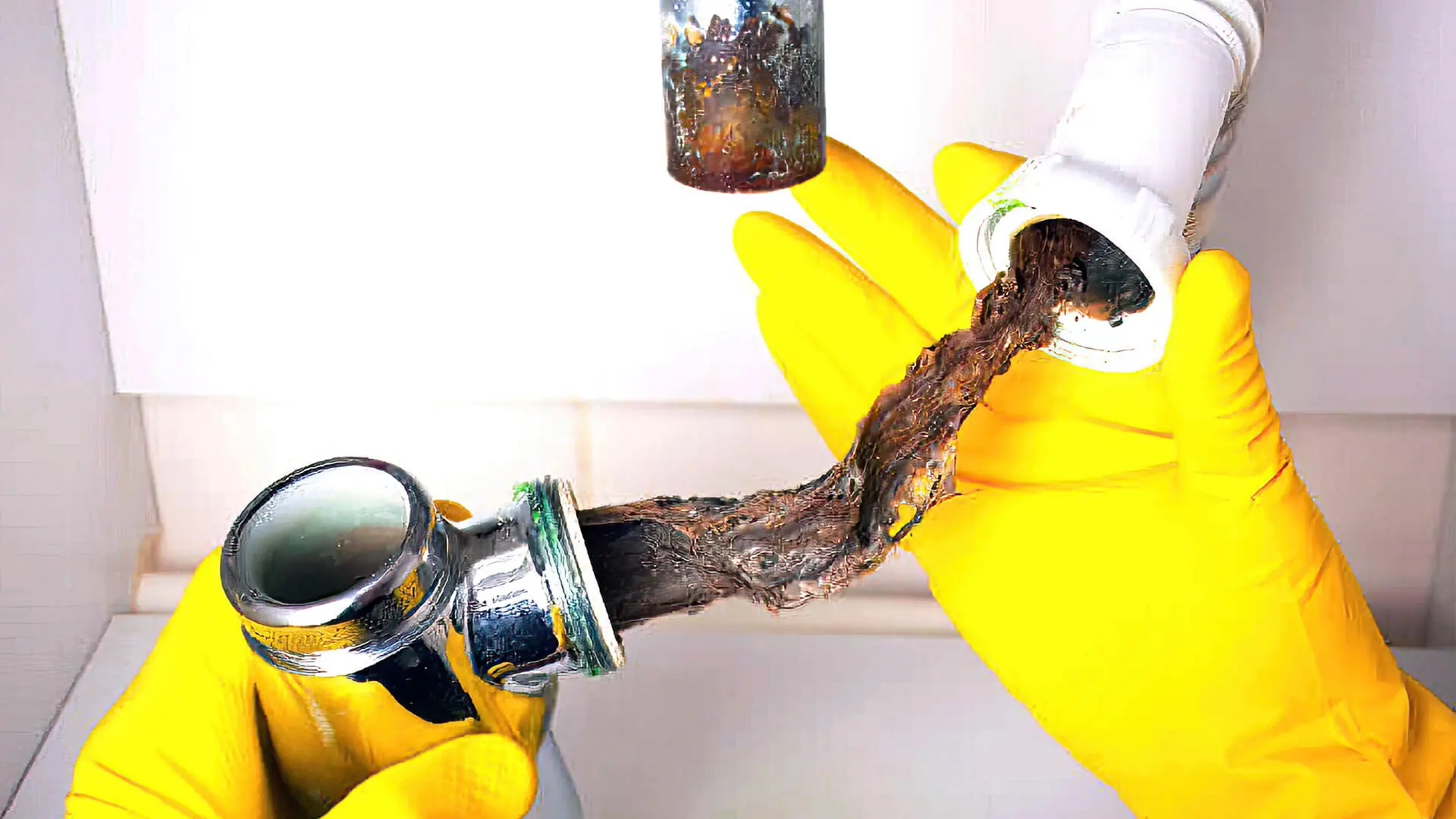
Every homeowner faces this hassle at least once. If you don’t clear it up swiftly, you risk health concerns. There’s a myriad of reasons for blockages: foreign objects, grease, hair, or other gunk building up over time.
Understanding the cause behind each issue allows for the formulation of a better strategy to deal with it. So, in this guide, we’ve discussed these factors and how to get rid of them in detail.
So, let’s take a plunge into this DIY clog removal!
What Are The Reasons For A Blocked Drain
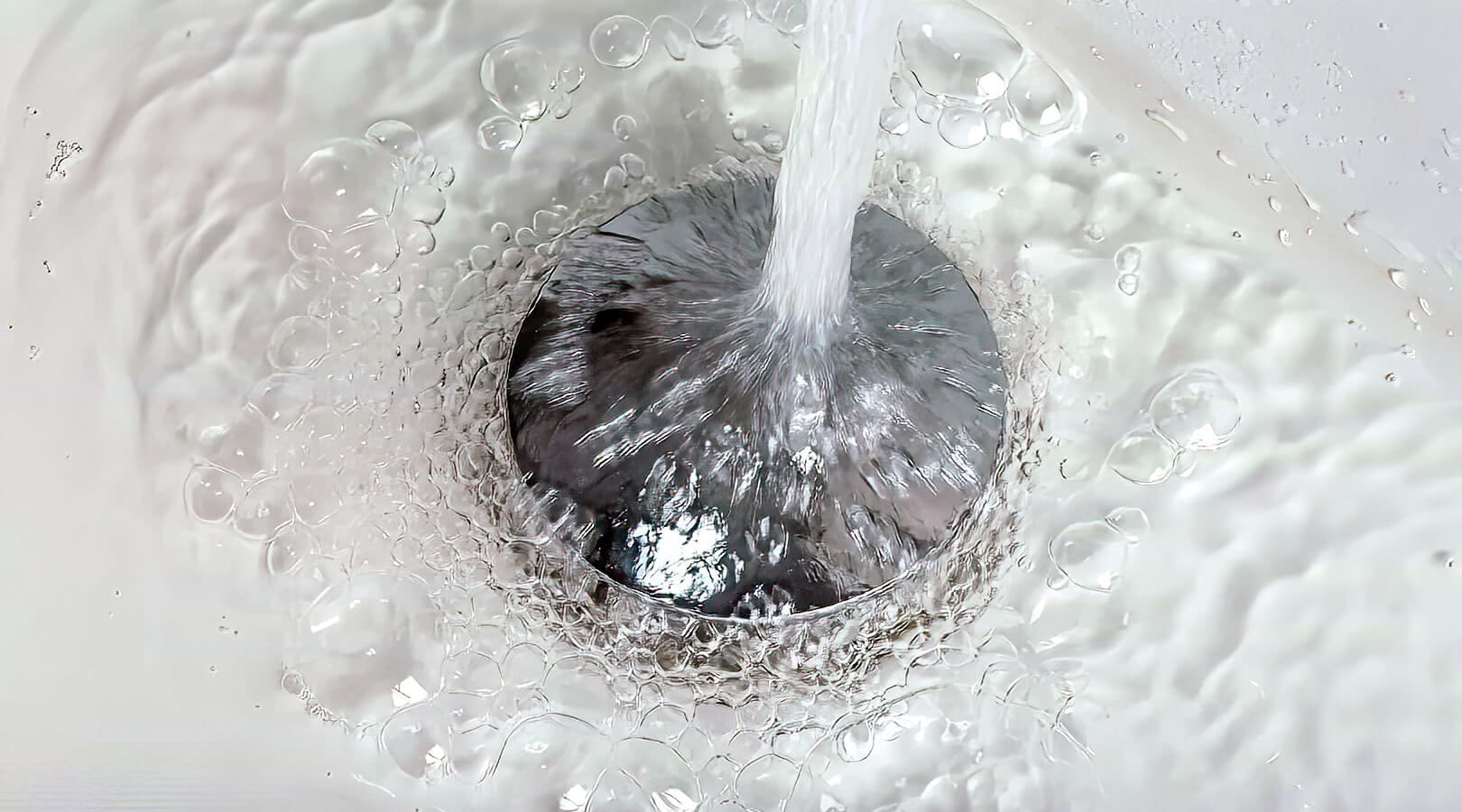
A. Hair
Hair is most likely the leading reason for clogged drains in our homes. Removing the hair from the gutters is usually easier, but if it’s not done right away, it can raise some severe issues.
When getting ready or showering, a lot of hair falls into the drain and gets attached to sticky materials like grease, soap and other things, blocking the drain. To avoid this, install guards in the shower drain and clean them daily.
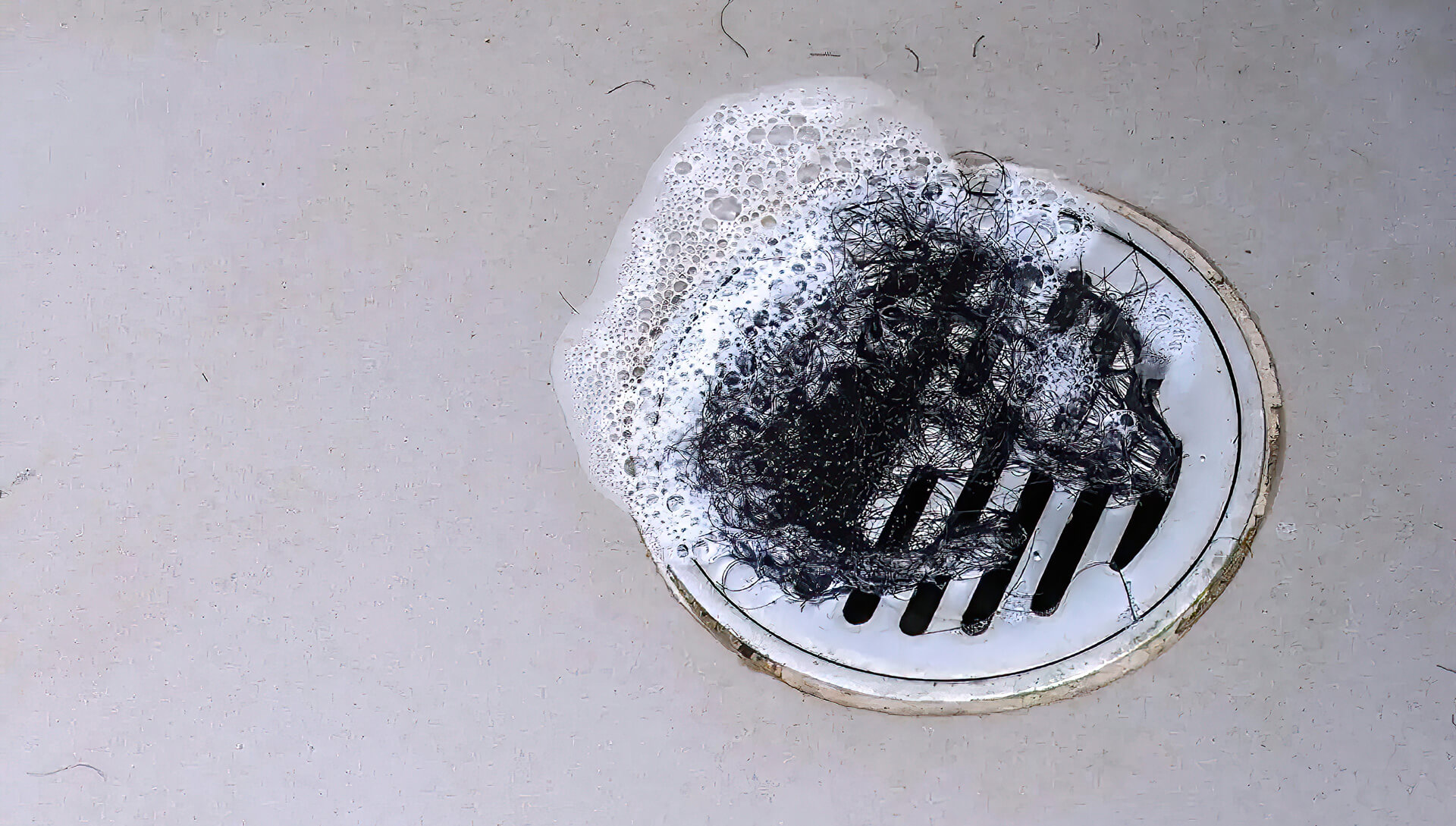
B. Soap
You may be wondering how soap could cause a blockage in your pipes. Traditionally, soaps are made of fat or grease, which combines with water minerals, forming a hard residue called soap scum that clogs pipes and stains bath fittings.
To tackle this, try switching to a liquid body wash and make a habit of cleaning your pipes regularly to keep them clear.
C. Dirt
Another reason for your blocked pipes is the deposition of dirt inside them. The purpose of drains is to carry waste and other elements outside, but dirt from your body and clothes can accumulate inside the drains and cause problems.
So, dust off the excess mud and dirt from your body and clothes outside before cleaning them inside.
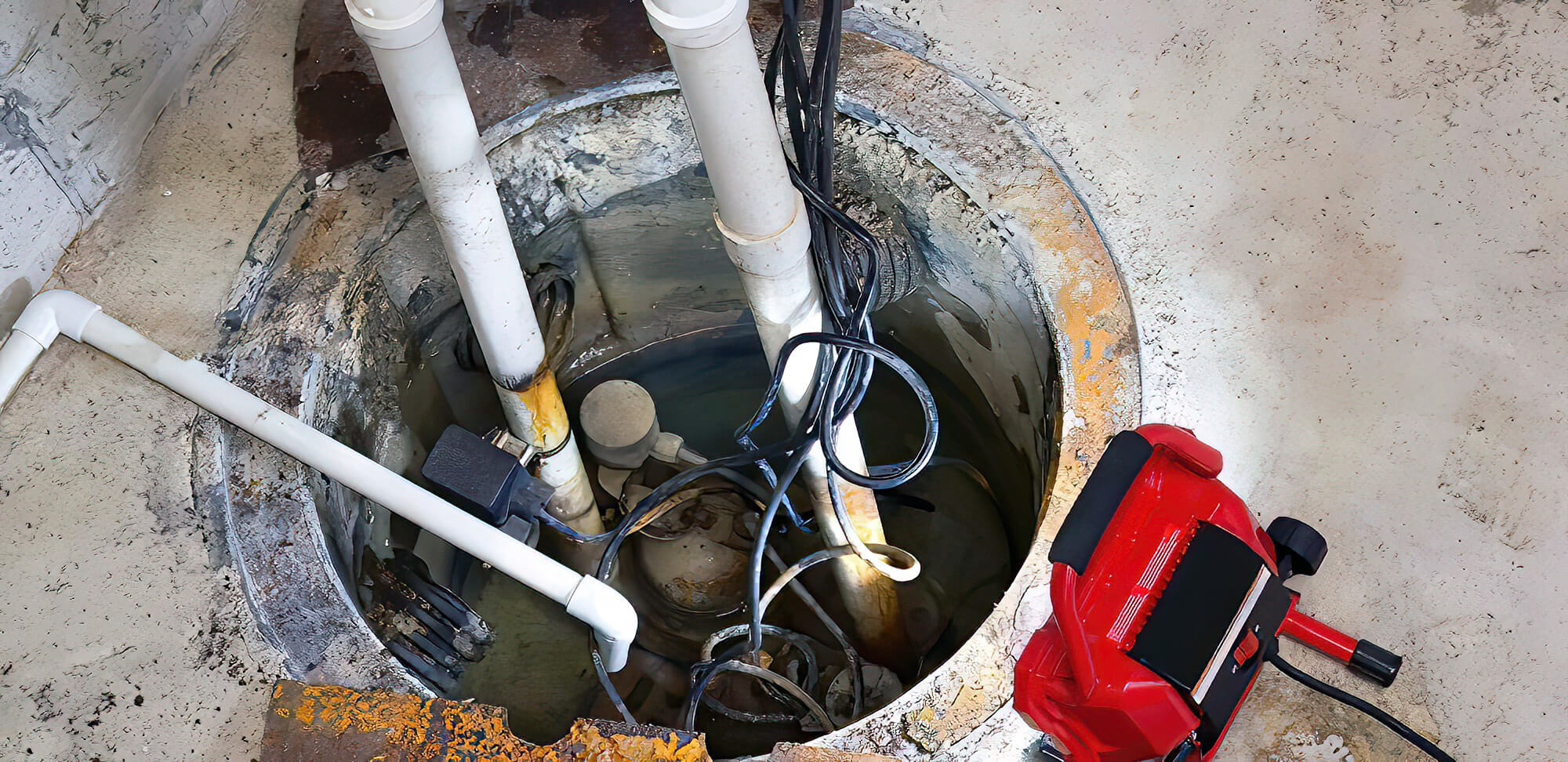
D. Food Waste
Many homeowners drain the food waste into the drain, which you must avoid despite having a waste disposal system in your kitchen or bathroom sink. Instead, have a waste bin in your house and dump it there.
A kitchen drain is one of the most common blockages; food debris, fats and oils typically get poured down the kitchen sink and cause more severe blockages than a bathroom would see.
It is essential for food scraps like coffee grounds and tea leaves that don’t decompose quickly. Aside from that, you should avoid foods high in cooking oil and grease because they solidify inside the pipe and cause clogging. Soak the oil from these items on a damp cloth and dump it in the bin.
E. Mineral Build-up
Some colonies may have a supply of hard water, and the minerals dissolved in them can accumulate to form insoluble masses, resulting in drain blockage. The only solution would be to install a water softener, or you might have to descale the water and prevent sediment build-up.
Once established, the mineral build-up is difficult to remove and requires professional assistance if your pipes and drains are no longer functioning correctly.
F. Foreign Objects
Kids run around the house, attempting to flush their stuffed animals down the toilet. It might be fun for them, but it can be a nightmare for the homeowners.
Many people, in addition to kids, intentionally dispose of smaller objects in the drain, in addition to toilet paper, water, and human waste. On occasion, natural debris may obstruct your outdoor drains, a frequent occurrence if you don’t have a gutter guard installed.
Things that are often flushed down a toilet that shouldn’t be are:
- Women’s hygiene products
- Most wet wipes
- Hair, exceptionally long hair
- General rubbish
If any such object gets stuck into the drain hole, it can wreak havoc on your drainage system. And you might need specialised tools like a drain auger or drain snake to deal with it. However, you might need to call a professional service if the situation worsens.
You must instruct your children not to flush their belongings. And it would be best to dispose of the sanitary wastes in a bin rather than flushing them down the drain.
G. Toilet Paper Build-up
Flushing down too much toilet paper or sanitary products also creates pipe blockage. To avoid toilet paper build-up, use a toilet plunger regularly. If water overflows from the toilet and no other DIY methods work, it’s time to call a professional plumber.
H. Tree Roots
Tree roots are probably the most common reason for a blocked drain. As the plants grow, their roots begin to grow and spread everywhere, eventually entering the drain if one is nearby. Most people don’t consider this when planting trees, shrubs and other plants. However, root penetration inside a drain can cause a blockage and burst pipes if not treated sooner.
The process of removing tree roots is complex and can have significant implications for your future plumbing needs. This procedure often necessitates robust tools and techniques, such as a hydro jet, excavation, and potentially even pipe replacement. So, ensure no trees are present in the closest proximity of a drain.
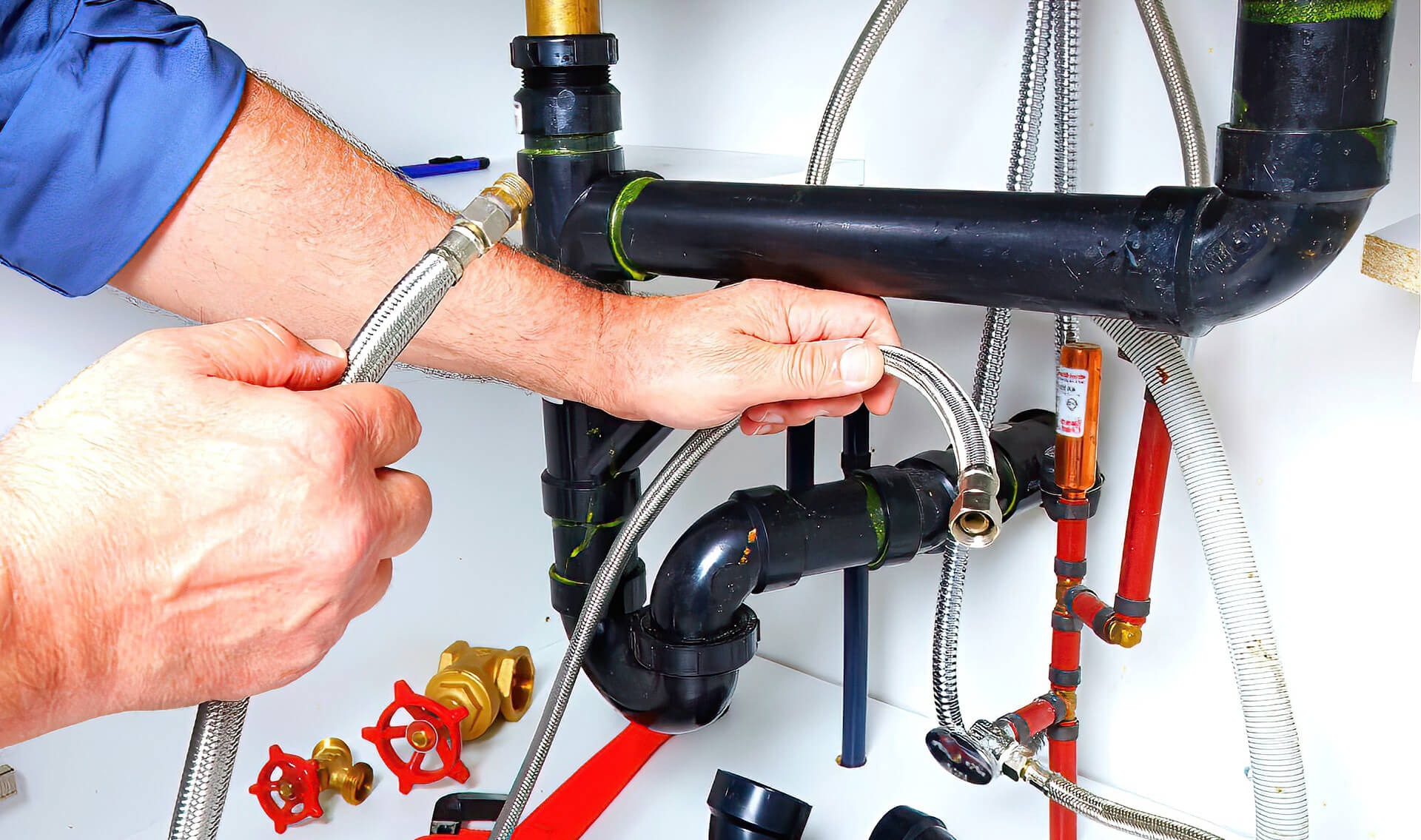
How To Clear A Blocked Drain?
A. Boiling Water
One simple solution for unclogging drains using your hot water system involves pouring at least half a litre of boiling water down the problematic pipe. In some cases, this might be enough to dissolve the accumulated blockages without resorting to more drastic measures.
Nevertheless, proceed with this method only if your hot water system is connected with metal or ceramic pipes, as plastic or PVC pipes may not withstand high temperatures. Pouring boiling water on plastic pipes can melt them, and heat can loosen the PVC pipe joints; despite it being able to loosen blockages, it’s not recommended to do frequently.
To clean PVC and plastic pipes, you may use water warmed by your hot water heater straight from your tap instead of boiling water. This method is effective for removing food and grease but will not remove stubborn blockages caused by soap, toiletries or other solid objects.
B. Baking Soda & Vinegar
Natural DIY cleaner, formed by mixing white vinegar and baking soda (bicarb soda), is also an effective drain-cleaning agent for blocked drains. Pour the baking soda down the drain, followed by vinegar and keep it covered for a few minutes to avoid bubbles oozing out of the drain.
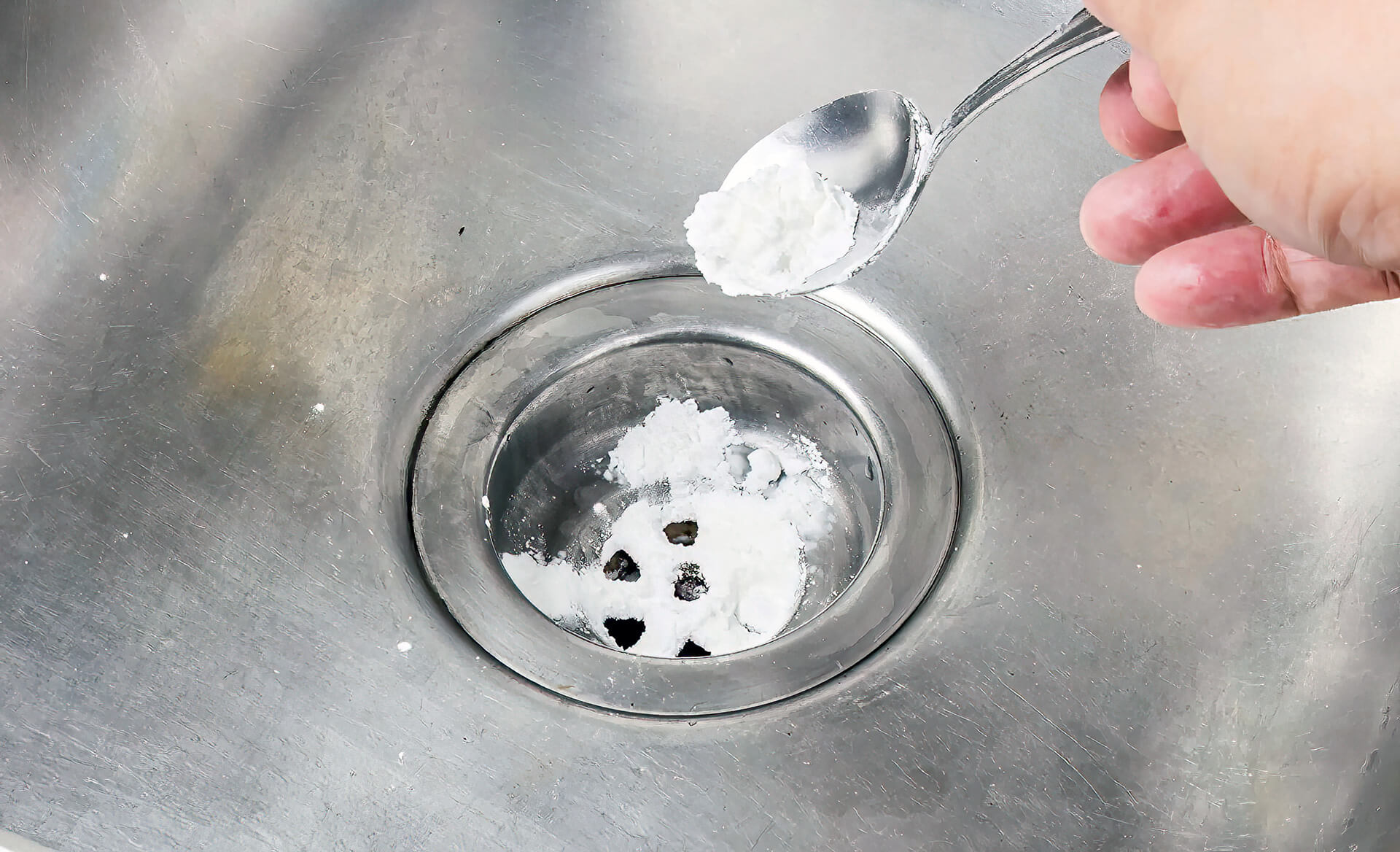
The bubbles are formed due to a chemical reaction between baking soda and vinegar that produces oxygen, which cleans up the drain from the inside. You might need to repeat the process a few times to eliminate the clog. Pour boiling hot water into the pipe after the mixture has scoured through the blockage to eliminate any leftover residue.
Typically, one cup of baking soda is enough to remove blockages, and it’s a well-tested home remedy that has worked for decades and should be one of the first steps in releasing blockages.
C. Caustic Cleaner
Another quality cleaner to get your way with cleaning a drain is caustic cleaners, readily available in a supermarket or local hardware store. This chemical is strong enough to dissolve hair, grease, food or others. However, these are considered hazardous, so make sure to use them in small amounts.
When using this chemical, wear gloves and a mask for protection. After clearing the blockage, follow up with hot water to rinse away any lingering chemicals.
D. Plunger
A plunger can be a highly effective tool in restoring water flow in a clogged drain, much like its use in a blocked toilet. Ensure all overflow spouts are covered to maintain a solid seal when you begin plunging. A plunger’s upward and downward movement loosens any clogs inside your pipe, allowing water to flow smoothly again.
This method is optimal for clearing solid blockages, which are otherwise difficult to remove using the above-mentioned methods. However, it doesn’t do an outstanding job with mineral or grease build-up.
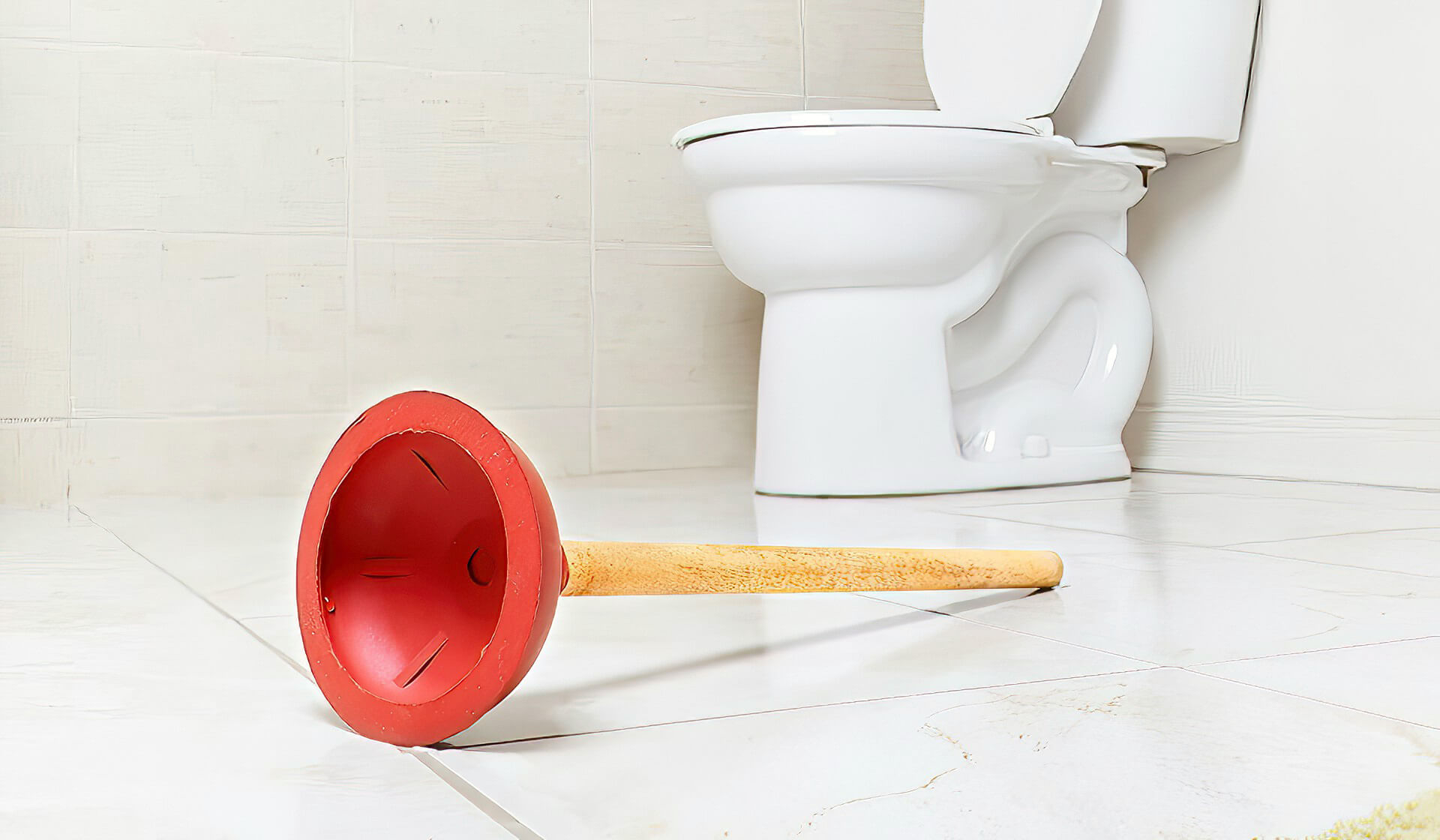
E. Drain Snake
A DIY drain snake, also known as an electric eel tool, is ideal for dealing with the harshest blockages. The tool is a long wire with a rotating coil in the bottom, so when inserted in a clogged drain, it clears the blockages away gradually.
Although it’s a quality tool for unblocking drains, its primary limitation is its small size, which offers a limited range. Unless there are blockages closer to the drain opening, it will not do a good job and will instead damage the pipe. So, try other methods first before using a plumber’s snake.
These are available at most hardware stores, or you can make them on your own by taking a wire hanger, straightening it, and making a U-bend at the end. Or, you always have the option to call professional plumbing services to clear the blockage for you.
F. Hydro Jet
Hydro jets, equipped with a high-pressure hose and a specialised nozzle linked to a device that emits a potent water stream, are used to clear blocked drains that present more severe obstructions. This method is typically much more effective and safer for your pipes than snaking but might not be effective for solid blockages.
While it’s possible to attempt this method independently, in many instances, calling an emergency plumber is the safest and most effective way to address the issue.
G. Excavation Or Pipe Relining
Excavation is done in extreme cases where the plumbers can’t remove the blockage remotely. With high-tech tools and jetting equipment, plumbers don’t need to access the pipe physically.
The drain in question might be in poor condition, or several plumbing leaks might be present that require pipe replacement of the entire section. Other than that, the pipe might get entangled in tree roots, which can be tricky to remove unless you’re willing to cut down the tree or kill the roots. If your plumber offers it, you may also be able to reline your pipes instead of replacement.
Clear Drain Blockages Clogs By Hiring A Pro
To clear a blocked drain, try starting with hot water; it’s often enough to dissolve minor clogs. For tougher clogs, chemical cleaners can help, but always follow the instructions. If you have a gas hot water system, make sure the water is sufficiently hot. Choose a cleaner that suits your plumbing to prevent damage. If the problem persists, it might be time to call in a professional to sort it out safely.
Before we wrap up, here are a few tips for you to choose the perfect plumber for the job. Always choose licensed plumbers, especially if your state requires licensing, as all Australian states do. Examine whether the plumbers provide proof of insurance and whether they are willing to offer same-day service to fix your plumbing emergency.
Additionally, ask your local plumber about their industry experience—the more, the better. After assessing your drains, they should offer a cost estimate. Lastly, feel free to check our 5-star reviews on our website.
If you’re still battling drain blockages despite your best efforts, it’s time to call a professional and have them fix the problem for you. So get in touch with us today and let our professionals unblock your drain safely, effectively, and without extra stress!
We hope these tips help you clear out your blocked drain. Goodbye and take care!



